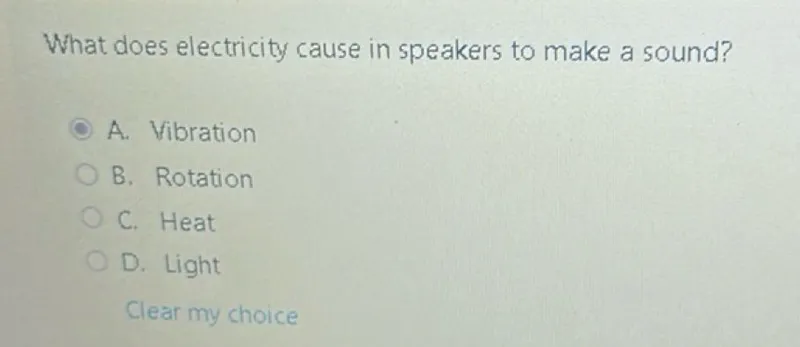Questions: What does electricity cause in speakers to make a sound? A. Vibration B. Rotation C. Heat D. Light

Transcript text: What does electricity cause in speakers to make a sound?
A. Vibration
B. Rotation
C. Heat
D. Light





